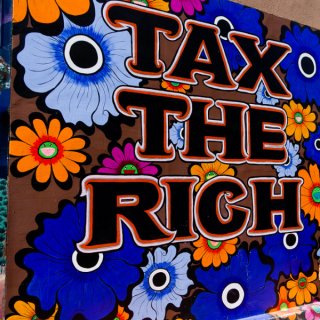February is the month that is set aside for Black/African American history. For twenty-eight days people who live in the United States, the United Kingdom, the Netherlands, Ireland and Canada will be indoctrinated with information and facts about known and unknown Black/African American people who have contributed to either their race, society or America. When I googled it, I learned that it also began as a way to remember important people and events in the history of the African diaspora.
The word indoctrinate means to teach a person or group of people to accept a set of beliefs uncritically. Some synonyms for indoctrinate are brainwash, re-educate, persuade, convince, condition, discipline and mold. Diaspora is the dispersion of any people from their original homeland. In this case the Africans that were dispersed into America as slaves.
Black History Month was used as a tool to please the people that were demanding it be taught in schools from elementary schools to college universities. But it started long before it was signed as an American event in 1976 by President Gerald Ford. In 1915, fifty years after emancipation, alumnus of the University of Chicago, including black historian Carter G. Woodson, put together a Black history display that had more than twelve thousand people view it during the three-week celebration. The success of this event was the inspiration for Woodson and the Association for the Study of Negro Life and History in 1926 to develop the Negro History Week, which was held the second week of February.
Although many people, especially Black people, joke that February was chosen because it was the shortest month, Woodson actually chose this month to encompass the birthdays of the two Americans that he felt played a prominent role in shaping black history. Abraham Lincoln, whose birthday is the 12th and Frederick Douglass, whose birthday is the 14th. However, Woodson felt that Lincoln hadn’t freed the slaves, rather the Union Army which included hundred of thousands of black military men had completed that mission. He wanted the event to focus on those black men and women who had helped advance human civilization.
Woodson’s goal was that Black History wouldn’t be just once during a week in February, but that it would be taught in all schools and felt the Negro History Week was a blueprint on how it could be taught, not only to students in school, but to adults also throughout the year. His goal was that Black people would learn about their history daily and not just during an annual celebration. Woodson died in 1950 without seeing this dream become a reality. It’s 2019 and still not a reality.
Thus far, Black History Month continues, but only if the President of the USA issues a proclamation endorsing the Association’s annual theme. In 2007, the 81st celebration of Black History Month, President Bush issued a proclamation, and its theme for the year was “From Slavery to Freedom: Africans in the Americans.” I looked up the proclamation from President Obama. Obama deals with the struggle of the Black race, the need to build our nation foundation of freedom and ensure equal opportunity, economic security, and civil rights for all Americans. It “proclaims” February 2011 as National African American History Month. He “calls” upon public officials, educators, librarians and “all” the people of the United States to “observe” this month with “appropriate programs, ceremonies and activities.” The theme, yes, there is a yearly theme, for the year was “African Americans and the Civil War” and Obama stressed the valuable sacrifices made “for the noble cause of liberty.”
I looked up President Trump’s proclamation. He acknowledges that Blacks have “endured egregious discrimination and bigotry” but they have “nevertheless, always been determined to contribute their earnest efforts to America’s greatness.” Trump stresses that they should remember the “challenges of our past,” and 2018’s Black History Month theme is “African-Americans in Times of War” and he then expounds on the military history of Blacks, and he ends it the same way they all end with “I proclaim February (year) as National African American History Month.” And each President, as part of the proclamation, “calls” upon public officials, educators, librarians, and “all” the people of the United States to “observe” this month with “appropriate programs, ceremonies and activities.”
Will there ever be a time when we won’t have to convince Americans to want to learn about the contributions of African Americans? Each president who signs a proclamation for the continuation of Black History Month reinforces and brainwashes people into believing they only need to learn, embrace and share their knowledge of the history of Black people once a month. And each yearly theme seems to condition, mold and propagandize Black people to remember that they were once slaves in America. Let’s move forward please.



